第60章 RUS IN URBE(2)
But don't tell me you prefer to stay in the city during summer. I don't believe it. If you do, why did you spend your summers there for the last four years, even sneaking away from town on a night train, and refusing to tell your friends where this Arcadian village was?"
"Because," said I, "they might have followed me and discovered it.
But since then I have learned that Amaryllis has come to town. The coolest things, the freshest, the brightest, the choicest, are to be found in the city. If you've nothing on hand this evening I will show you."
"I'm free," said North, "and I have my light car outside. I suppose, since you've been converted to the town, that your idea of rural sport is to have a little whirl between bicycle cops in Central Park and then a mug of sticky ale in some stuffy rathskeller under a fan that can't stir up as many revolutions in a week as Nicaragua can in a day."
"We'll begin with the spin through the Park, anyhow," I said. I was choking with the hot, stale air of my little apartment, and I wanted that breath of the cool to brace me for the task of proving to my friend that New York was the greatest--and so forth.
"Where can you find air any fresher or purer than this?" I asked, as we sped into Central's boskiest dell.
"Air!" said North, contemptuously. "Do you call this air?--this muggy vapor, smelling of garbage and gasoline smoke. Man, I wish you could get one sniff of the real Adirondack article in the pine woods at daylight."
"I have heard of it," said I. "But for fragrance and tang and a joy in the nostrils I would not give one puff of sea breeze across the bay, down on my little boat dock on Long Island, for ten of your turpentine-scented tornadoes."
"Then why," asked North, a little curiously, "don't you go there instead of staying cooped up in this Greater Bakery?"
"Because," said I, doggedly, "I have discovered that New York is the greatest summer--"
"Don't say that again," interrupted North, "unless you've actually got a job as General Passenger Agent of the Subway. You can't really believe it."
I went to some trouble to try to prove my theory to my friend. The Weather Bureau and the season had conspired to make the argument worthy of an able advocate.
The city seemed stretched on a broiler directly above the furnaces of Avernus. There was a kind of tepid gayety afoot and awheel in the boulevards, mainly evinced by languid men strolling about in straw hats and evening clothes, and rows of idle taxicabs with their flags up, looking like a blockaded Fourth of July procession. The hotels kept up a specious brilliancy and hospitable outlook, but inside one saw vast empty caverns, and the footrails at the bars gleamed brightly from long disacquaintance with the sole-leather of customers. In the cross-town streets the steps of the old brownstone houses were swarming with "stoopers," that motley race hailing from sky-light room and basement, bringing out their straw doorstep mats to sit and fill the air with strange noises and opinions.
North and I dined on the top of a hotel; and here, for a few minutes, I thought I had made a score. An east wind, almost cool, blew across the roofless roof. A capable orchestra concealed in a bower of wistaria played with sufficient judgment to make the art of music probable and the art of conversation possible.
Some ladies in reproachless summer gowns at other tables gave animation and color to the scene. And an excellent dinner, mainly from the refrigerator, seemed to successfully back my judgment as to summer resorts. But North grumbled all during the meal, and cursed his lawyers and prated so of his confounded camp in the woods that I began to wish he would go back there and leave me in my peaceful city retreat.
After dining we went to a roof-garden vaudeville that was being much praised. There we found a good bill, an artificially cooled atmosphere, cold drinks, prompt service, and a gay, well-dressed audience. North was bored.
"If this isn't comfortable enough for you on the hottest August night for five years," I said, a little sarcastically, "you might think about the kids down in Delancey and Hester streets lying out on the fire-escapes with their tongues hanging out, trying to get a breath of air that hasn't been fried on both sides. The contrast might increase your enjoyment."
"Don't talk Socialism," said North. "I gave five hundred dollars to the free ice fund on the first of May. I'm contrasting these stale, artificial, hollow, wearisome 'amusements' with the enjoyment a man can get in the woods. You should see the firs and pines do skirt-dances during a storm; and lie down flat and drink out of a mountain branch at the end of a day's tramp after the deer. That's the only way to spend a summer. Get out and live with nature."
"I agree with you absolutely," said I, with emphasis.
For one moment I had relaxed my vigilance, and had spoken my true sentiments. North looked at me long and curiously.
"Then why, in the name of Pan and Apollo," he asked, "have you been singing this deceitful paean to summer in town?"
I suppose I looked my guilt.
"Ha," said North, "I see. May I ask her name?"
"Annie Ashton," said I, simply. "She played Nannette in Binkley & Bing's production of The Silver Cord. She is to have a better part next season."
"Take me to see her," said North.